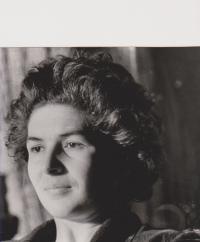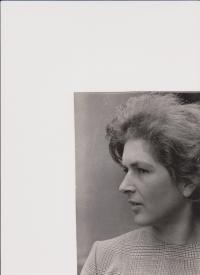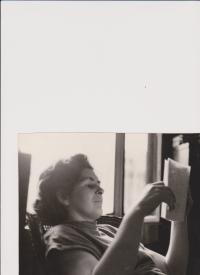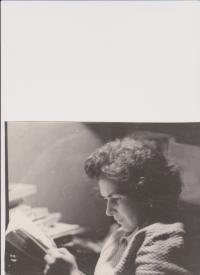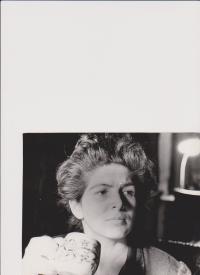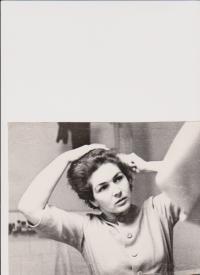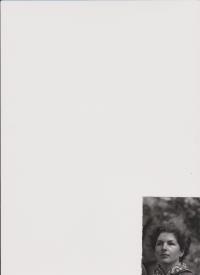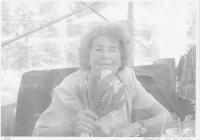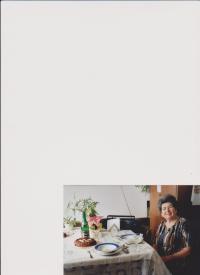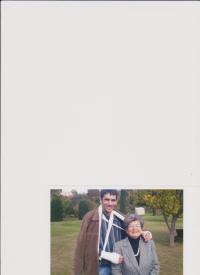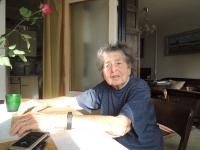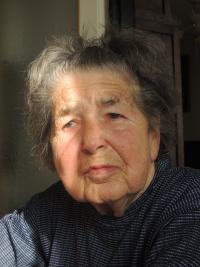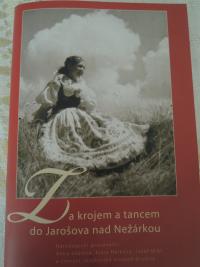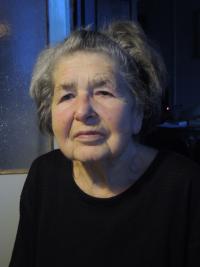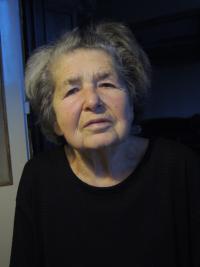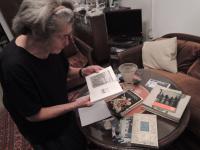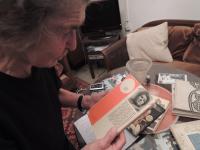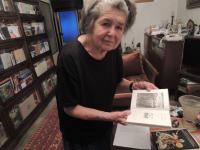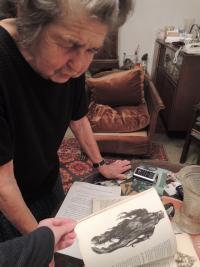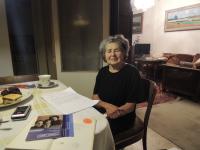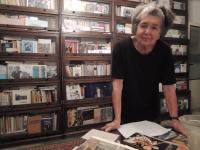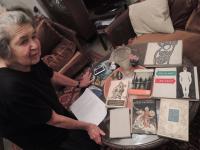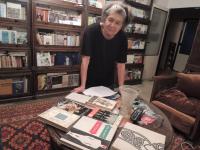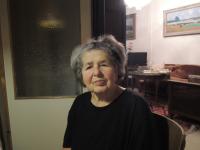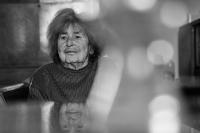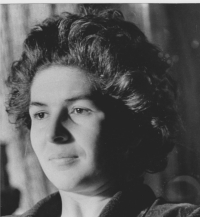So that people do not forget that they are humans

Download image
Olga Bojarová, née Hůlková, was born on May 9, 1925 in Prague. She witnessed the consequences of the German occupation of Czechoslovakia in autumn 1938, when she was one of Girls Scouts who were helping at the Denis Railway station (in Těšnov, now non-existent) to find accommodation for Czech citizens who escaped from the border regions after the German takeover of the area. A year later she managed to avoid being sent to do forced labour in Germany. She worked for the railway company in Prague and later in the office of the Railway Health Insurance Company, where she was secretly studying Russian. After the war she married writer and translator Pavel Bojar (1919-1999), with whom she wrote and translated several books (especially Gogol’s Dead Souls and Tolstoy’s The Road to Calvary). At the time of post-war enthusiasm they both joined the Communist Party. However, when Olga, who was a student of the Faculty of Arts of Charles University, refused to serve in the screening committee in 1948, she was forced to quit her unfinished studies of Czech language and aesthetics. She has never regretted her decision, however, because caring for her growing family as well as translating French and Russian classics provided sufficient fulfilment for her life. After her divorce with Pavel Bojar in 1965 she remained with their three children and she had to find a permanent job. In 1967 she became appointed the head of the foreign department of the Czechoslovak Women’s Union. After the Soviet occupation in August 1968 she voiced her disagreement with the arrival of the Warsaw Pact armies to Czechoslovakia and she was expelled from the Women’s Union. During political purges in 1969 she was also dismissed from the Communist Party when she expressed her admiration for the brave act of Jan Palach. She worked in the press department of the Textile and Clothing Association for two years, and then in Art Centre (Czechoslovak centre for fine arts). In 1971 she served as an interpreter during the preparation of Jaroslav Frič’s audiovisual presentation about Iran in Montreal in Canada. In the 1970s and 1980s Olga was not allowed to publish her own works nor translated works. With her second husband Evžen Zeman she visited Pavel Tigrid in Paris several times and they were illegally importing books from France. In spite of that, she has never regarded herself as a dissident. Olga Bojarová is now nearly blind and she can no longer write nor read, but she finds joy in the successes of her children, grandchildren and great-grandchildren.
